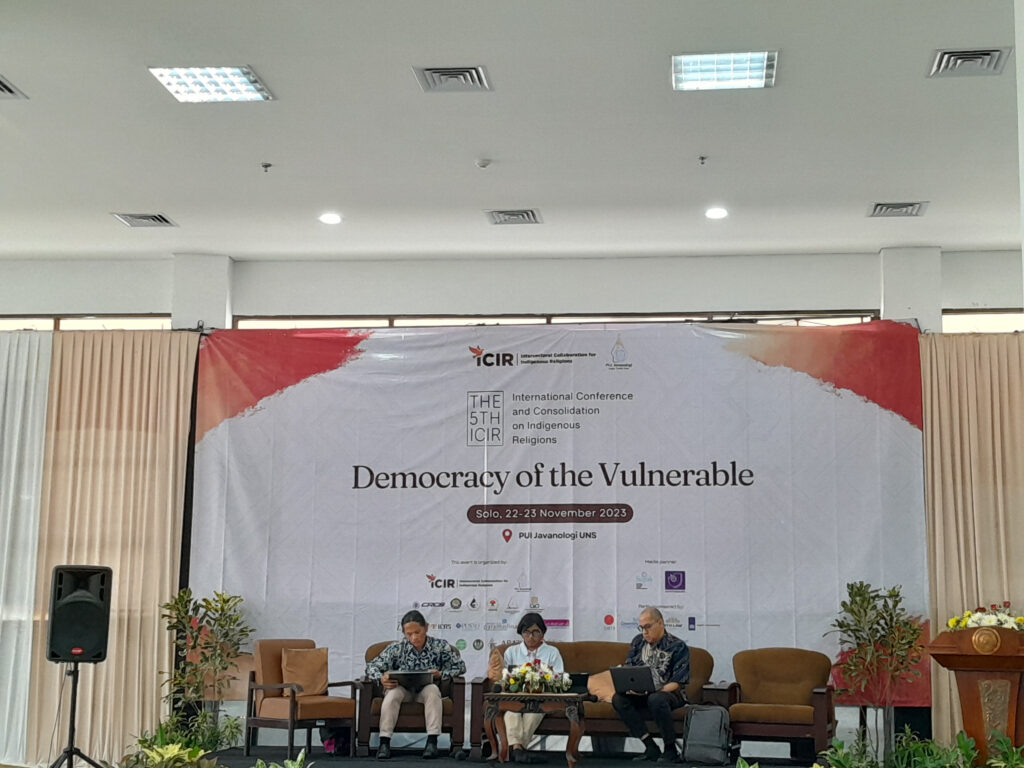With the enactment of the new Criminal Code in Indonesia, significant changes can be seen in the legal framework that regulates violations related to freedom of religion and belief. Despite efforts to strengthen protection of individual rights. However, several aspects indicate that there is uncertainty and even concern regarding who actually gets full protection.
One of the striking changes is related to the criminalization of statements deemed to be an insult to freedom of religion and belief. Although the intention may be to protect religious values, implementation of this provision may also have an impact on freedom of expression.
Data shows that cases of religious violations more often impact individuals or minority groups. At the risk of oppression of those who voice non-dominant views or beliefs. This invites critical questions about who actually gets protection in the context. Do efforts to protect religious freedom have the potential to curb freedom of expression.
In further analysis, violations related to religion or beliefs occurred more frequently against religious minorities. Although the new Criminal Code attempts to provide protection, there are still legal gaps and inconsistent implementation.
Unfair or discriminatory law enforcement against minority groups can result in inequality in legal protection. It is important to ensure that the new Criminal Code truly protects all citizens, regardless of their beliefs or religion.
The data also highlights the influence of politics in law enforcement regarding religion or belief. Cases where those in power take advantage of these provisions for their own political interests are an issue that deserves closer attention. This creates serious challenges in ensuring that the new Criminal Code is actually used to protect human rights. Not as a political tool.
At the Consolidation of Traditional Religions held by ICIR in Solo several months ago, Zainal Abidin Bagir from ICRS UGM explained that there were several serious problems in articles related to religion. However, the new law will not guarantee that practice in the field will change. It is important for us not to use the term religious blasphemy because it no longer exists in the reality of litigation (the Criminal Code).
“Indeed, there will be intolerant people, but their place is not in prison. Crime is not the best way, and should be avoided as much as possible. Let's just take this (the passing of the Criminal Code) as momentum to raise the issue of religious blasphemy again for revision. "But until now it hasn't been done," explained Zainal.
For this reason, in an effort to increase the effectiveness of protection related to religion or belief in the new Criminal Code, it is necessary to strengthen the restrictions imposed. Dialogue and active participation from various community groups, including religious minority groups, can help formulate provisions that are fairer and reflect the diversity of Indonesian society.
Uli Parulian Sihombing, National Commission (KOMNAS) on Human Rights (HAM) provides recommendations for a restorative justice approach through penal mediation in handling cases of blasphemy of religion or belief. The basis is restorative justice which emphasizes recovery efforts, where victims and perpetrators, facilitated by Law Enforcement Officials (APH), seek solutions for recovery efforts.
"This concept is actually rooted in our customary laws, which were later taken up by western scholars and called restorative justice," explained Uli Parulian.
Meanwhile, Asfinawati, an academic from the Jentera College of Law (STHJ), added that mainstream groups often determine whether or not there are statements of hatred against religion. Reports from religious groups, 6 non-religious groups, from members of sects deemed heretical are often not followed up on.
"I propose that, even though the law has been created, we can seize the space for its meaning for minority groups, either through the constitution, politics or independent commissions," explained Asfinawati.
Improvements in implementation and enforcement of the law are also key. Comprehensive training for law enforcement officers and increasing legal awareness in society can help ensure that the new Criminal Code is not just a legal text, but also becomes an effective instrument in protecting the human rights of all citizens.


